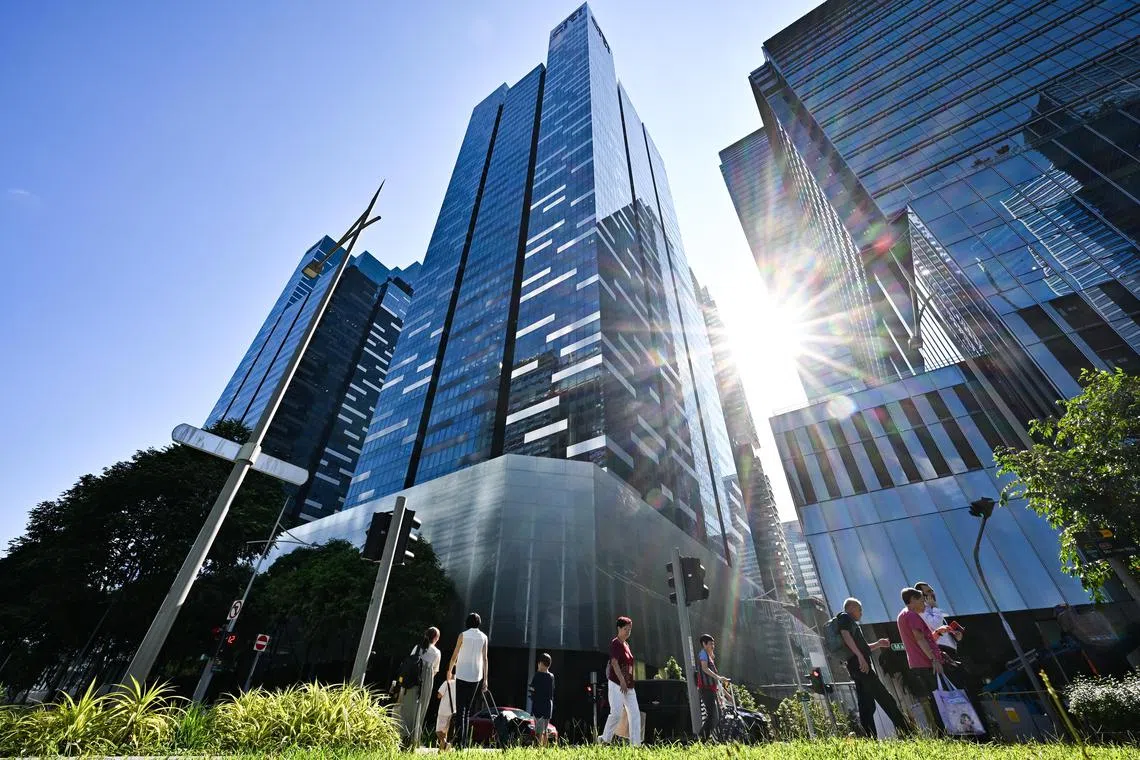Singapore firms’ payment performance improves for fourth straight quarter
Sign up now: Get ST's newsletters delivered to your inbox

Improvements in the retail, services and wholesale trade sectors have outweighed the slight decline in the construction and manufacturing sectors.
PHOTO: ST FILE
Chong Xin Wei
Follow topic:
Singapore – Local firms’ payment performance improved for a fourth consecutive quarter in the second quarter of 2024, the Singapore Commercial Credit Bureau (SCCB) said on July 2.
The credit and risk information solutions provider noted that both prompt and slow payments accounted for slightly over two-fifths of total payment transactions.
Prompt payments in the second quarter improved by 0.04 percentage point quarter on quarter to 41.11 per cent. Year on year, prompt payments were up by 0.19 percentage point from 40.92 per cent.
Slow payments declined 0.05 percentage point quarter on quarter and 0.25 percentage point year on year to 44.07 per cent.
Meanwhile, partial payments rose 0.01 percentage point quarter on quarter and 0.06 percentage point year on year to 14.82 per cent.
By sector, three of five industries – retail, services and wholesale – saw a quarter-on-quarter drop in slow payments in the second quarter.
On a year-on-year basis, the construction, retail, services and wholesale sectors recorded declines in slow payments. Manufacturing was the only industry that registered higher payment delays on the year.
In the construction sector, slow payments rebounded in the second quarter after falling for three consecutive quarters. Slow payments rose by 0.04 percentage point quarter on quarter and fell by 0.46 percentage point on the year to 55.24 per cent.
Within the construction industry, the heavy construction sector accounted for the largest increase in payment delays, rising 0.07 percentage point quarter on quarter to 54.72 per cent.
Meanwhile, slow payments among manufacturers rose after two straight quarters of decline. Slow payments were up 0.08 percentage point quarter on quarter to 39.08 per cent. SCCB attributed the increase in payment delays to general manufacturers and manufacturers of electronics and chemicals.
General manufacturers recorded the largest rise in payment delays, up 2.5 percentage points to 44.85 per cent in the second quarter.
This was followed by manufacturers of electronics, whose payment delays increased by 0.93 percentage point to 46.08 per cent. Payment delays by chemical products manufacturers edged up 0.2 percentage point to 46.1 per cent.
On the year, slow payments in the manufacturing industry rose 0.1 percentage point.
In the retail sector, payment delays dropped 0.11 percentage point quarter on quarter and 0.2 percentage point year on year to 43.15 per cent, as payment delays by retailers of general merchandise, food and beverages, as well as furniture and home furnishings fell.
Within the services sector, slow payments edged down 0.17 percentage point quarter on quarter and 0.55 percentage point year on year to 42.58 per cent, as payment delays by hotels and accommodation, health and consumer services dropped.
In the wholesale trade sector, slow payments fell 0.12 percentage point quarter on quarter and 0.14 percentage point year on year to 40.28 per cent. SCCB attributed this improvement to a drop in both slow payments by wholesalers of durable and non-durable goods.
SCCB chief executive Audrey Chia noted that the improvements in the retail, services and wholesale trade sectors have outweighed the slight decline in the construction and manufacturing sectors.
She added that partial payments have also been on an uptrend for the past six consecutive quarters. “This is a sign of greater credit vigilance among firms in the recent months.”
Prompt payment refers to when 90 per cent or more of total bills are paid within the agreed payment terms. Slow payment refers to less than 50 per cent of total bills being paid within the agreed terms. Partial payment refers to between 50 per cent and 90 per cent of total bills being paid within the agreed payment terms. THE BUSINESS TIMES

